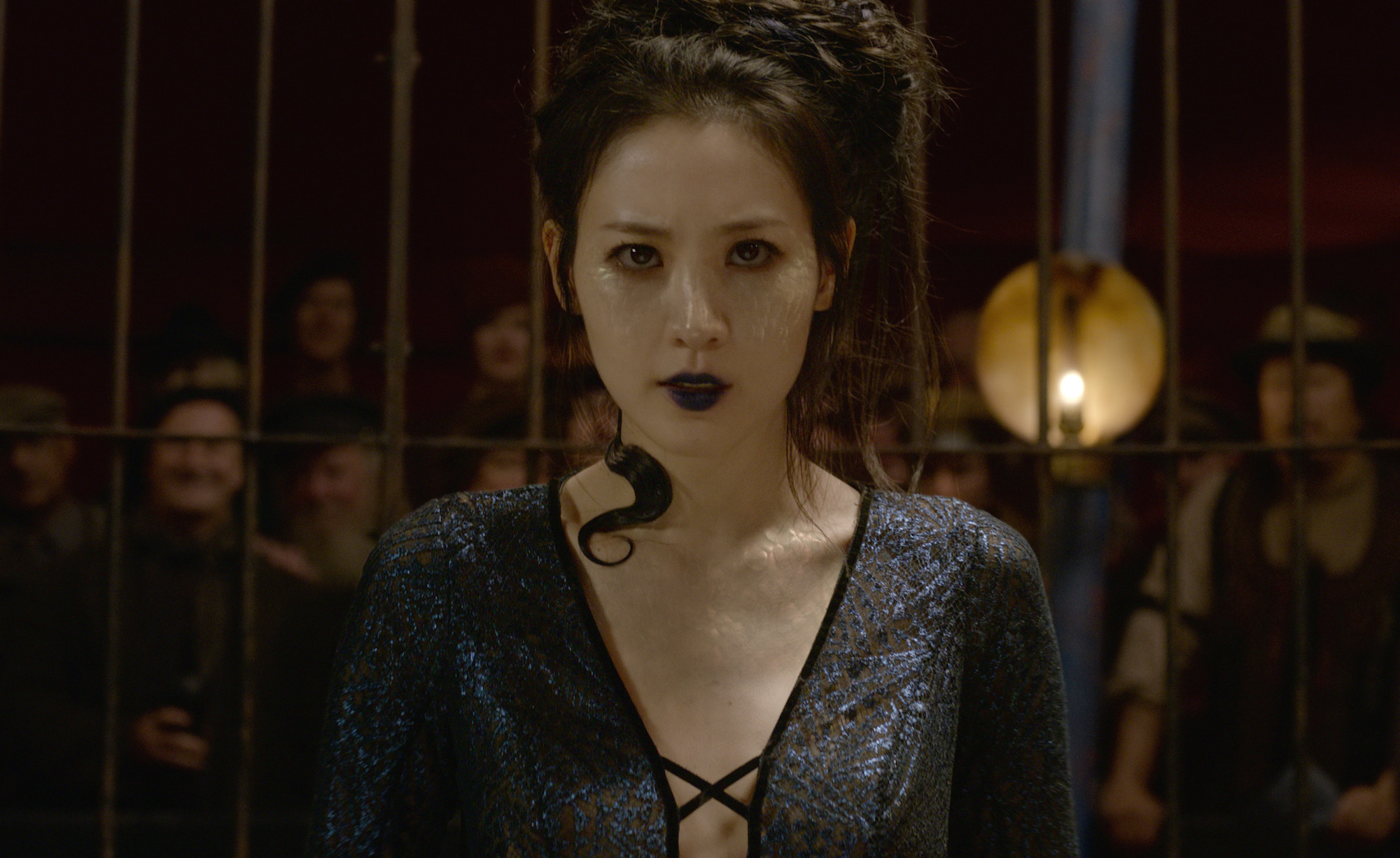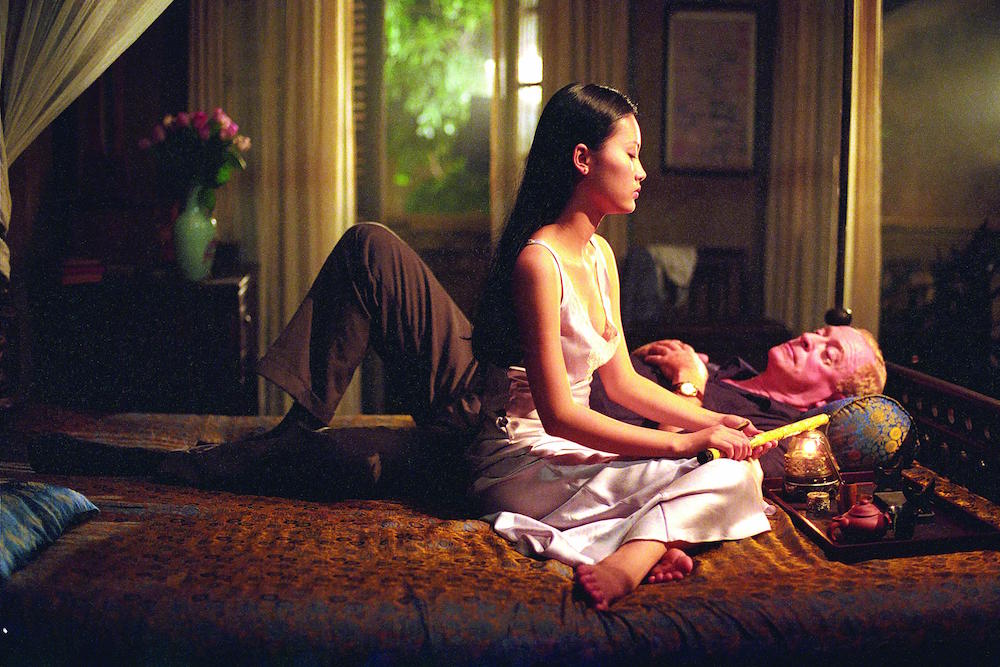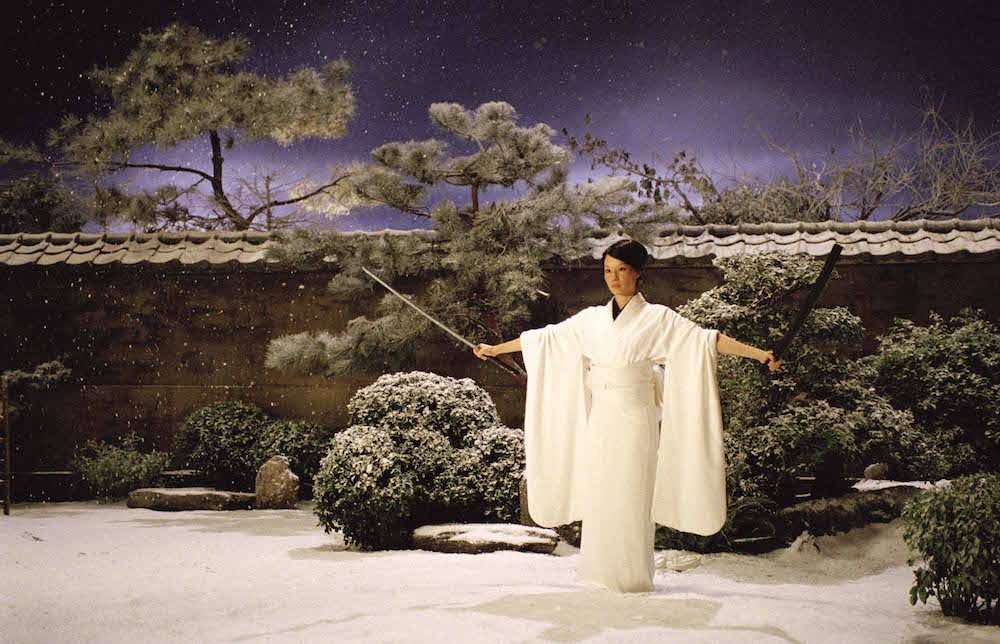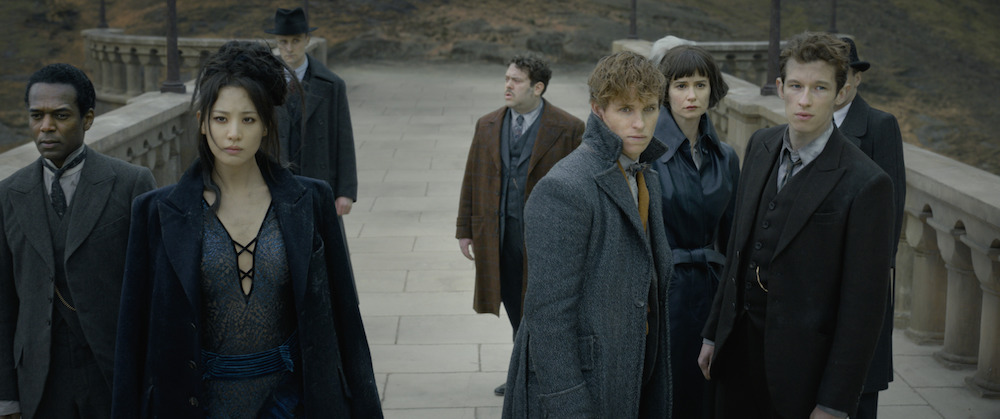This is why you should care about Nagini in Fantastic Beasts
The casting of South Korean actress Claudia Kim has ignited a major debate about race in the Potter universe


The casting of South Korean actress Claudia Kim has ignited a major debate about race in the Potter universe
Another day, another Potter casting controversy. The internet was set on fire after the final trailer for Fantastic Beasts: The Crimes of Grindelwald dropped and I’m not going to lie, it looks awesome. However there was one detail that rankled both me and a number of Potterheads as a character called Nagini – yes, Voldemort’s pet Nagini – was unveiled.
It turns out that Voldemort’s faithful reptilian servant and Horcrux is actually what’s called a Maledictus, a woman who ‘carries a blood curse from birth, which is passed down from mother to daughter’ according to J.K. Rowling. As you’ve probably guessed, Nagini’s curse is that she will eventually become a snake. Nothing wrong with that, it's a cool magical concept. However, it was the choice to cast South Korean actress Claudia Kim in the role and J.K. Rowling's defense that sparked controversy.
Let’s start with something vitally important: this isn’t about Claudia Kim. Nobody should be mad at Claudia Kim, she’s an actress who got a once-in-a-lifetime gig. Like many of us would have, she took it. However it’s everything surrounding the decision to cast her which doesn’t sit well with me as a half Asian woman, as it seems to reinforce stereotypes and it feels like a poorly conceived afterthought – a way to bring diversity to the film without really thinking too hard about it.
So, let’s start with what we already know about Nagini. In the books, the snake is essentially Voldemort’s slave and mostly non-verbal (except for when Harry parselmouths his way into understanding her). If you know anything about problematic Asian stereotypes, this smacks of them even if it’s not totally obvious on the surface.

There’s this backwards stereotype of Asian women as submissive to male men, an idea perpetuated back in the time when Asian countries were being colonised left, right and centre or written about by Western powers. In the books, Nagini is literally a servant enacting the wishes of a dominant white male, Voldemort, and is never given any real personality or voice – she’s defined by her relationship to Voldemort. It goes without saying that nobody should be defined by another person, but there’s a colonial undertone here that reinforces white superiority that’s kind of gross.
As one Twitter user put it, ‘I feel like this is the problem when white people want to diversify and don't actually ask POC how to do so. They don't make the connection between making Nagini an Asian woman who later on is the pet of a white man. So I'm going to say it right now. That shit is racist.’
Marie Claire Newsletter
Celebrity news, beauty, fashion advice, and fascinating features, delivered straight to your inbox!
Another more obvious stereotype that you’ve probably heard thrown around is the idea of Asian women as ‘dragon-ladies’. Nagini is literally an Asian woman who transforms into a scaly reptilian creature. Even to the untrained eye, the parallel is pretty obvious.
With Nagini, you get a one-two punch of conflicting yet pretty harmful Asian stereotypes - the subservient Asian woman and the Asian dragon-lady, defined by Penn State University as a Western trope of Asian women being portrayed as ‘oversexualised’ and ‘deceitful’ villains in a position of power. And then given that Harry later in the books has to actually kill her, as she's a Horcrux and literal fragment of her master Voldemort's soul, it's a troubling image at its best of of white superiority. At its worst, Nagini's own agency and identity doesn't even come into question – she is her master's object, and therefore, without her own right to existence.

There's also the fact that not just Asian women, but other Asian men and women of colour are usually relegated to sideline supernatural or alien characters in films that are generally dominated by white humans (and especially white human males). Think of Pom and Gamora from Guardians of the Galaxy Vol. 2, Magnus Bane in The Mortal Instruments and Teen Wolf's Kira Yukimura. It's not enough that we're people of colour, we're also shoved into yet another box that others us and sets us up as a deviation from the 'normal'.
I know these things are complicated and might seem like a reach. As is the case with debates like this, there’s a lot of people in the Asian community who are mad and a lot of people who couldn’t care less: Asian and otherwise. But the fact is that it’s not just me that’s picking up on this, it’s a whole chorus of people on the internet that have noticed it and it needs to be called out for perpetuating these harmful myths.
However, J.K. Rowling explained on Twitter that the Nagini myth was rooted in Asian tradition to defend herself and it opens a brand new can of worms – or well, snakes.
She wrote on Twitter, ‘The Naga are snake-like mythical creatures of Indonesian mythology, hence the name ‘Nagini.’ They are sometimes depicted as winged, sometimes as half-human, half-snake. Indonesia comprises a few hundred ethnic groups, including Javanese, Chinese and Betawi. Have a lovely day’.
There’s a couple of things here to unpack.
Claudia Kim is a South Korean actress. Even though the Naga myth is an Indonesian thing (according to Rowling, but we’ll get into that whole mess later), Rowling's defense boils down to ‘it’s an Asian thing, so it’s okay’. She doesn’t take into account that the film cast a woman who is not Indonesian or even any of the other races she name-dropped, but I don’t know how involved she is with Fantastic Beasts. She may not have any power over casting, so I’m not going to point fingers at her for something that might have been out of her control.
I will however, take her to town for her response. Even if J.K. Rowling didn’t mean it this way, by implying that it was okay to cast a South Korean actress in a role that is Indonesian-inspired is almost like she’s saying that all Asians are the same. It’s a pretty insulting claim. And if you think I should get over it, just remember that British people get mad all the time when you get their hometown wrong, let alone which country they’re from. We aren’t all the same, we have our own unique and different cultures that we’re fiercely proud of.

J.K. Rowling actually got the origin of the Naga legend wrong. In fact, an expert on Nagas actually chimed into the Twitter conversation to tell her that the legend actually originated in India.
Amish Tripanthi, the author of The Secret of the Nagas, said, ‘Actually @jk_rowling the Naga mythology emerged from India. It travelled to Indonesia with the Indic/Hindu empires that emerged there in the early Common Era, with the influence of Indian traders and Rishis/Rishikas who travelled there. Nagin is a Sanskrit language word.’
Casting Nagini as an Asian woman, or even introducing Nagini at all feels like a feeble, ill-thought out attempt at diversifying the Harry Potter universe. I’m not making a controversial statement when I say that it’s always struggled with a lack of racial diversity and when it did dip its toe in, we got Cho Chang. Her name kind of says it all.
Although this might be the Potter team’s well-intentioned attempt to right their previous wrongs, Nagini is actually a harmful form of Asian representation for the community. I would have been happier if Claudia Kim had just played a regular non-Nagini witch who happened to be living in either England or Paris, where the new film is set according to CNET.

I’m still going to watch the film though, in fact I’m super excited for it and really enjoy Fantastic Beasts. (Why else would I have written several articles dissecting every new trailer that comes out?) But this is something that I feel is getting lost a little nowadays – you can love a franchise, watch and enjoy a film and yet still be able to call out and recognise why it’s messed up. I’ll still watch Sixteen Candles every now and again, even if Long Duk Dong makes me want to throw my TV out of the window when he comes on.
At the end of the day, the debates about representation in Harry Potter, Star Wars or anything in the Avengers universe stem down to the clear fact that people in the Asian community love these franchises. Like the rest of you, we just want them to do better.
Fantastic Beasts: The Crimes of Grindelwald will come out in the UK on November 16, later this year.
Megan is a freelance journalist who covers entertainment and all things lifestyle, with a particular passion for fashion, beauty, travel and Keanu Reeves stories. She has previously worked on staff for titles including Marie Claire UK, CNN Style and The Evening Standard and has written for titles such as Bustle UK, Wallpaper*, Forbes and Hong Kong Tatler. She splits her time between London and her hometown Hong Kong, where she currently lives with the love of her life - an elderly dog named Poppy - and her husband.
-
 Andrea's It List: Finishing touches that elevate any outfit
Andrea's It List: Finishing touches that elevate any outfitDon't underestimate the power of accessories that make your outfit pop
By Andrea Thompson
-
 The fashion set is obsessed with lace-up shoes right now—these are the best pairs to shop
The fashion set is obsessed with lace-up shoes right now—these are the best pairs to shopNew summer footwear obsession, unlocked
By Sofia Piza
-
 I tried Pilates roll-downs every day for a week - and was amazed at how quickly it eased years of stiffness
I tried Pilates roll-downs every day for a week - and was amazed at how quickly it eased years of stiffnessConsider my spine more mobile than before.
By Rebecca Shepherd